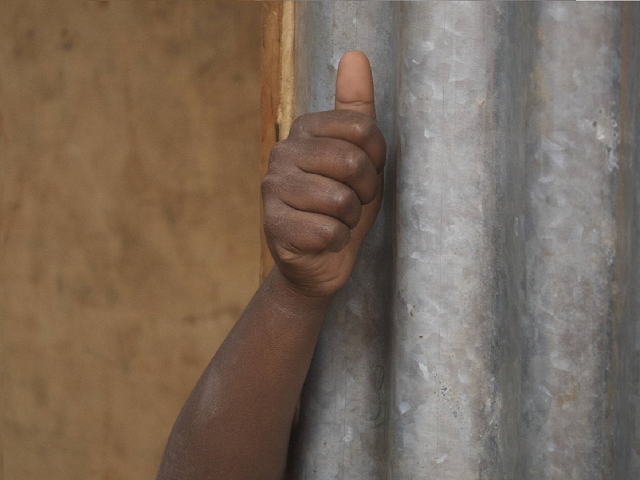Successfully sending volunteers abroad for 10 years
Last week, Tanzania hit the headlines, but unfortunately, it was not good news for local Maasai communities in the northern Loliondo region. According to a U.S.-based think tank, the Oakland Institute, tens of thousands of Tanzania’s ethnic Maasai families had been made homeless after the government burned their homes to make way for two foreign safari companies and their tourists.
The Institute accused Tanzania Conservation Limited and its affiliates - Thomson Safaris and Ortello - of denying villagers near the Ngorongoro Crater tourist hub from accessing important grazing and watering holes with their livestock. The safari companies, which organise hunting trips for UAE royalty, allegedly ‘land-grabbed’ a vast area and forcibly evicted locals who lived there.
This created huge problems for these communities, who bring thousands of cattle from around the savannah in Tanzania and Kenya to graze on the land, which also happens to be a popular tourist hotspot for its thriving wildlife presence.
As yet, the case is unresolved, with the accused companies denying any wrongdoing. In 2015, the court ruled that the company had legally purchased 10,000 acres of a disputed 12,617 acres of land in 2006. The Maasai appealed and this case is still pending.
Conservation or neocolonialism?
This exposé begs wider questions around which criteria environmental organisations should fulfill in order to call themselves true ‘conservationists’. As Hellen Kijo-Bisimba, head of the Tanzania Legal and Human Rights Centre, told The Associated Press:
“The government has been reviewing boundaries and subsequently evicting communities in the name of conservation. In my understanding, the conservation should have been made to benefit people, and if people are affected then it calls for worries. The Maasai community (is) indeed suffering.”
We must ask; what is really being conserved here? Clearly, it is not the local environment in its original form, because that includes local communities, too.
By violently evicting locals from their homes in order to make space for the safari tourism experience, Thomson Safari and Ortello are merely attempting to preserve the fantasy of a wild Africa devoid of modern human culture - a version of Tanzania created, curated and ‘cleansed’ for the privileged tourist.
So is this conservation tourism, or is it a thinly-veiled form of neocolonialism? Well, Thomson Safaris claim it is the former, saying that “what made Tanzania so alluring was not just the wildlife, but the people. When people return from a safari with us, they say how magnificent the wildlife was, but that what was so extraordinary were the people they met.”
But local communities are not merely passive groups to ‘witness’ as you would a passing lioness - they are cultures with a deep-seated history in the area, who need to live on the land they inhabit - and have done for centuries - in order to survive.
What this story, and others like it, demonstrate is the importance of a holistic view on conservation and sustainability within the foreign tourism sector in Africa. Safaris are not simply about seeing beautiful animals in their natural habitat, they are about appreciating nature and culture in conjunction. This kind of tourism is not sustainable if it actively oppresses the very local people who ought to benefit from it.
What does an ethical safari trip look like?
Whatever the conclusion of this case, it is a wake-up call to the safari industry at large that the welfare of human populations should be valued as highly - more highly, in fact - than that of animal ones.
As Anuradha Mittal of the Oakland Institute told The New York Times:
“As tourism becomes one of the fastest-growing sectors within the Tanzanian economy, safari and game park schemes are wreaking havoc on the lives and livelihoods of the Maasai. But this is not just about a specific company – it is a reality that is all too familiar to indigenous communities around the world.”
The African tourism industry - volunteering companies included - must maintain good intentions when running safari trips across the continent. We must all make every effort to ensure that our operations empower and support local communities, whilst educating tourists, rather than pushing local people to the sidelines.
The Agape alternative
At Agape Volunteers, ensuring sustainable practice is a key objective for all of our Maasailand safari adventures. This means ensuring various aspects are carried out with the local Maasai people in mind. For example, our safari trips use only locally-run camps, rather than large corporations. In doing so, this ensures that our safaris empower the local community, create jobs and interact with the land on their terms. All Agape Adventures staff on our Maasailand safaris are employed on fair contracts by Agape Volunteers.
We also ensure that our safari camps have a wider social impact, by pumping any profit we make through these adventures back into local projects that support the Maasai people in areas where they have identified a need for development. It is also important that visitors understand how to be respectful guests in Maasailand, and learn about the importance of conserving both the local wildlife and the local peoples' ways of life. As such, all of our safaris include a mandatory education and outreach session with the local Masai who operate the park. This is particularly important when it comes to knowing which areas of the park to stay within, and how to ensure minimal disturbance to local communities.
Maasailand is a unique and integral part of the natural world, which must be managed sustainably in order to protect the biodiversity and welfare of the animals that call it home. However, the tourism projects that bring funding and awareness to the area must also be operated sensitively, and with the best interests of the Maasai people as a central motivation. This is possible, but it requires dedication and effort, along with the humility to tread carefully and remember that we are, indeed, guests.
In Other News
We've always got plenty going on, so why not check out some of our other latest news and thoughts? Or perhaps you're ready to gt stuck in yourself? If so, Apply Now to get in touch with one of our specialist trip advisors.

